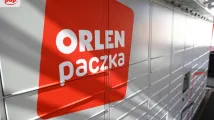Profil:
Orlen SAPoland will not grant oil and gas extraction tax relief equivalent to that planned for copper mining
Poland's Ministry of Finance will not grant oil and gas extraction a tax relief equivalent to that planned for copper mining, the ministry wrote in response to the climate ministry's opinion on the draft law introducing changes to the tax on copper mining.
The Ministry of Climate and Environment wants the possibility of deductions from the mineral extraction tax to also apply to oil and gas.
The Ministry of Finance has begun the process of agreeing on an amendment to the act on the tax on the extraction of certain minerals, which aims to reduce the tax burden on copper producers in order to enable the implementation of investment plans related to the role of copper in the transformation of the economy as a key product for clean energy technologies.
The reform provides for the possibility of deducting 50 percent of expenditure on investment projects to increase production incurred from 2026 and a 3-year period of reduced tax rates.
In the first three years of the reform, copper producers will obtain funds for investments in the amount of PLN 750 million (EUR 176 mln) per year, and in subsequent years, approximately PLN 1.5 billion (EUR 351.8 mln) per year.
"Including oil and natural gas extraction in the scope of the currently pending amendment to the act on tax on the extraction of certain minerals would result in further disparities in the level of resource rent due to the State Treasury for the extraction of these hydrocarbons," wrote the Ministry of Finance.
According to the Ministry of Finance, copper ore extraction technology is much more cost-intensive and spread out over time than hydrocarbon extraction.
In Poland, copper is extracted through mining. It is necessary to drill excavations (shafts, galleries, and chambers), extract the ore (drilling, blasting with explosives, or mechanical extraction with mining combines), and then load the ore onto haulage cars, belt conveyors, and transport it to the surface.
"Due to the gradual depletion of exploited deposits, rock extraction is taking place at ever greater depths, which further increases the costs of the process. In the case of hydrocarbon extraction, however, extraction is carried out using the borehole method by drilling holes in the ground to reach underground hydrocarbon deposits," according to the Ministry of Finance.
"Extraction is automated and does not require the construction of shafts, galleries, chambers, or the work of miners in the excavations. The deposit is exploited by pumping hydrocarbons to the surface through pipes," it added.
According to the Ministry of Finance, another important factor is the structure of tax rates for copper and silver, which causes an exponential increase in taxation as copper and silver prices rise on global markets.
"As a result, the tax burden borne by taxpayers extracting copper and silver is significantly higher than in the case of taxpayers extracting crude oil and natural gas, where
the tax rate is structured as a fixed percentage (two tax rates are possible for a given hydrocarbon, depending on the type of deposit)," the Ministry of Finance wrote.
map/ han/ nl/

